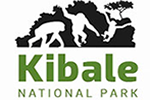CHIMPANZEE HABITUATION GUIDELINES
Chimpanzee Habituation guidelines play an important role especially in protecting both visitors and chimpanzees in the wild. Chimpanzees are endangered species, sharing up to 98.7% of their DNA with humans. Considering their current status, there is need to ensure that they exist for future generation and this can be achieved if guidelines for Chimpanzee Habituation or Chimpanzee Trekking are properly observed.
In Uganda, a total of 5050 chimpanzees are left and their lives are threatened by a number of factors. Firstly, there is continued habitat loss due to encroachers, poaching, spread of human infectious diseases which claims their lives and others. Here are some of the important Chimpanzee Habituation Guidelines to follow on Uganda safari to see chimpanzees.
Chimpanzee Habituation Guidelines/Regulations
- The acceptable minimum age limit for chimpanzee habituation experience is 15 years. Persons of within this age brackets and above are eligible to visit Kibale National Park or Budongo Forest to enjoy chimpanzee habituation experience.
- All visitors on chimpanzee habituation must observe a 8-10 meters distance between them and chimpanzees. This is to limit any possibility of spreading infectious diseases to these endangered species.
- All human wastes must be buried as directed by the park official/your guide in the field and usually, it is recommended that you do so 30cm deep. This is aimed to reduce spread of infectious human diseases to chimpanzees.
- Keep low your voices while in the jungles searching for chimps in Kibale or Budongo during your long day trek. This is to ensure that the daily behaviors of chimps aren’t tempered.
- You will be allowed to take part in chimpanzee habitation provided that you aren’t sick. Visitors with cases of flue, diarrhea, cold may not be allowed to visit chimpanzees.
- Wear a facemask or if you don’t have, cover your mouth when coughing or nose when sneezing.
- Maximum of 4 hours will be spent face to face with chimpanzees upon locating in the jungle.
- Don’t smoke, drink or eat in the presence of chimpanzees- this is whether you are on a normal chimp trek or chimpanzee habituation tour in Uganda.
- Stay calm in case chimpanzee charge at you and follow the guide’s guide instructions.
- Only non- flashlight cameras are acceptable for photography- this is because flashlight camera scare or irritate chimpanzees and later cause harm to you or other visitors.
- Chimpanzee permits should be obtained if you are to be allowed to visit chimpanzee community during chimpanzee habituation adventure.
Packing for Chimpanzee Habituation safari in Uganda
The following items should be considered on your packing list for Uganda chimpanzee habituation safari in Kibale National Park. They include waterproof hiking or walking shoes/boots, good camera free of flashlight, warm clothes or sweater, rain jacket or coat, waterproof daypack;
Comfortable clothes preferably long sleeved shirt, trousers, socks; insect repellents, first aid kit, enough drinking water, high energy giving snacks or packed food (chimpanzee habituation experience being a long day adventure of following chimps), extra camera batteries and more.
Best time to go for chimpanzee habituation
Habituation experience in Kibale or Budongo is available all year-round. But, the dry season is without doubt the best time to visit Kibale for you to engage in chimpanzee habituation experience and this is from June to September/December to February.
Chimpanzee habituation is an extra-ordinary experience and unlike the normal treks, during habituation, visitors follow the semi-habituated chimpanzee community for half day or full day. This involves observing every bit of their behaviors till they make new nests to retire for night sleep.
Kibale chimpanzee habituation permits in Uganda cost USD250 if you are visiting as a Foreign Non-Resident, USD200 as Foreign Resident and shs. 200,000 for East African citizen. You can easily obtain Kibale chimp habituation permits via a reliable tour operator or company on ground.
In Kibale alone, over 13 primate species live in the moist evergreen forest and over 1500 chimpanzees all reside here. In addition, there are many Uganda red colobus monkeys, olive baboons, the mangabeys, black and white colobus monkeys, patas monkeys, pottos, blue monkeys, vervet monkeys, red tailed monkeys and others. These and other wildlife species can be spotted during chimpanzee habituation experiences which means, you have more than chimpanzees to see.
